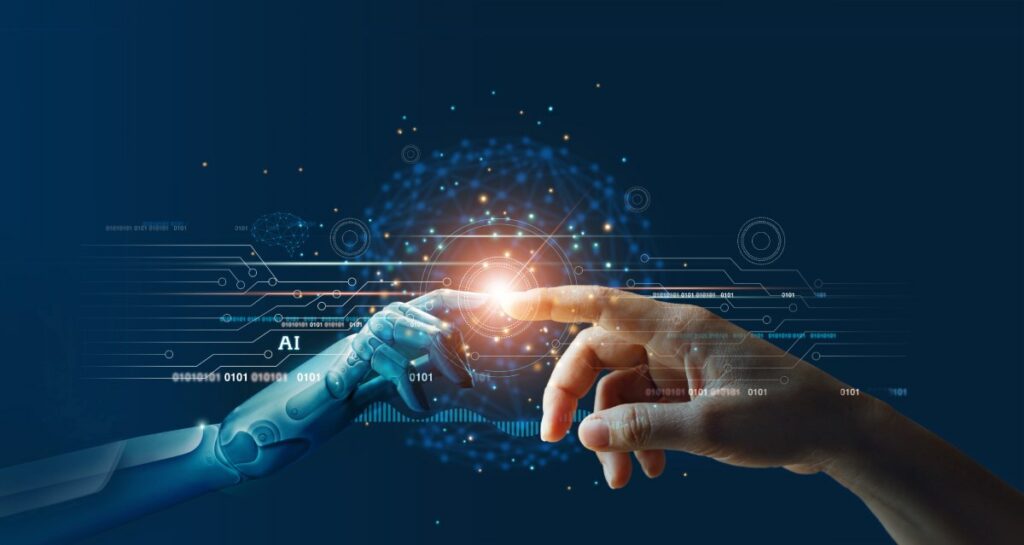As artificial intelligence (AI) continues to evolve, it is starting to play a more significant role in the world of work. One area where AI is making a particularly substantial impact is recruiting. By automating the screening process, AI allows recruiters to spend more time evaluating candidates on their merits, leading to better hires.
In this article, we will explore how AI is changing the field of recruiting and discuss some of the benefits that this technology brings to the table. We will also look at some of the challenges that companies face when implementing AI into their recruitment strategy and offer some advice on how to overcome them.

How Is Artificial Intelligence Changing Recruiting?
Artificial intelligence (AI) can be defined as simulating human intelligence by machines. In other words, AI is the ability of a computer to perform tasks that would typically require a human being.
In the context of recruiting, companies can use AI to automate various tasks such as screening resumes, conducting initial interviews, and scheduling follow-up interviews. By taking on these time-consuming tasks, AI allows recruiters to focus on the more human elements of recruiting, such as building relationships and assessing candidates’ skills.
AI is also changing the way those job postings are written. In the past, job postings were often very general and did not give candidates a clear sense of the job. However, with the help of AI, companies can now generate more targeted and specific job postings. This attracts better candidates and saves time by Screening out those who are not a good fit for the position.
The Benefits of Using AI in Recruiting
Many benefits come with using AI in recruiting. First and foremost, AI can help to improve the quality of hires by automating the screening process. By taking on this task, AI allows recruiters to focus on the more human elements of recruiting, such as building relationships and assessing candidates’ skills.
In addition, AI can also help to speed up the recruitment process. With the help of AI, companies can generate more targeted and specific job postings. This attracts better candidates and saves time by Screening out those who are not a good fit for the position.
Finally, AI can also help to improve candidate experience. In the past, job seekers often had to go through a lengthy and frustrating process when applying for jobs. However, with the help of AI, the application process can be streamlined and made much more efficient.
The Challenges of using AI in Recruiting
Despite the many benefits that come with using AI in recruiting, some challenges need to be considered. First and foremost, AI can lead to biased hiring decisions. This is because AI relies on data to make decisions, and this data is often flawed. For example, if a company’s data shows that most of its successful employees are white men, then the AI system will likely screen out not white candidates.
Another challenge with using AI in recruiting is the lack of transparency. Often, candidates are not told why they were not selected for a position. This can be frustrating for candidates and can lead to rejection.
Finally, AI can also be expensive to implement. Companies need to invest in the hardware and software required to run an AI system. In addition, they also need to train their staff on how to use the system.
How to Overcome the Challenges of Using AI in Recruiting
Despite the challenges of using AI in recruiting, there are some ways to overcome them. One way to overcome the challenge of biased hiring decisions is to create a diverse data set. This can be done by collecting data from a variety of sources. Another way to overcome this challenge is to have humans review the data before it is used to make hiring decisions.
The challenge of the lack of transparency can be overcome by communicating with candidates throughout the process. Companies should let candidates know what stage of the process they are in and what criteria they will be judged on.
Finally, the challenge of the high cost can be overcome by partnering with other companies. By sharing resources, companies can reduce the costs of implementing an AI system.
Final Thoughts
Artificial intelligence is changing the field of recruiting. With the help of AI, recruiters can now focus on the human elements of recruiting-building relationships and assessing candidates’ skills. By automating the screening process, AI allows recruiters to spend more time evaluating candidates on their merits, leading to better hires. However, some challenges come with using AI in recruiting, such as biased hiring decisions and the lack of transparency. Nevertheless, these challenges can be overcome by taking specific measures such as creating a diverse data set and communicating with candidates throughout the process.



